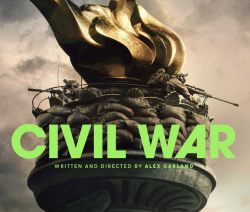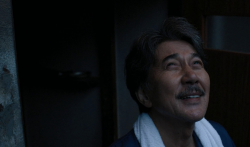There’s something paradoxically satisfying about watching a great hero’s tragic downfall. Every tumble down a slippery slope confirms our expectations, even as that character manages to draw our sympathies on the road to perdition. Over the narrative arc of its consistently glorious five seasons, Breaking Bad has accomplished that difficult task of getting the audience to root for the bad guy throughout his descent into monstrosity. The problem is deciding whether or not to play to those sympathies when the end is nigh.
Since the show has repeatedly emphasized that no crime can go unpunished, a story of ancient thematic import, it has always been a given that its antihero would be the last to fall victim to the darkness he created. His fierce desire to control every element of his surroundings stayed with him until the very end of Breaking Bad’s tightly constructed final episode, “Felina.”
Rather than force Walt to fall into disgrace as power slipped from his hands, the show’s writers allowed him to hit rock bottom, only to have him gather himself up again and try to set things right by doing what he’s always done: manipulating people and circumstances to his advantage. He reaches the end with all loose ends tied and his pride intact, only a slightly more humane version of the unscrupulous murderer he had established himself to be.
Only two episodes earlier, in “Ozymandias,” we were left watching Walt grovel in the desert after falling for a ploy from the Nazis and seeing his carefully protected empire crumble before his eyes. If the series had ended then, it would have followed the traditional pattern of Shakespearean tragedies. His pride and desire for control would have made him orchestrate his own destruction, only after which Albuquerque could be restored to balance.
Many people would have been satisfied with this ending, since it would have been in sync with the show’s moral perspective. After Walt’s endless power grabs and drastic measures for the sake of his legacy, his own desperation for control would have left him utterly powerless and grief-stricken. For the sake of narrative integrity, it would make sense to support this ending as the most logical and most gut-wrenching. Even if Walt were out of the picture, the broken people he left behind could slowly begin to heal on their own terms. At least, we could imagine them doing so.
That ending would make sense, the inevitable conclusion to a gritty morality tale. Still, I know I would have been disappointed. Like the rest of Breaking Bad’s fans, I’ve been through too much with these characters to watch them fade to black without an ending that set them on the right paths. This is the emotional part of me, the part that completely understands why people were angry that The Sopranos ended in ambiguity and Lost closed out with a bunch of incoherent mythological mumbo jumbo. Watching these shows is a major investment of both time and emotion, and it’s natural to demand a return. Vince Gilligan & Co., it’s fair to say, worked hard to provide it. It’s just that they did so by compromising their entire ethos and giving Walt back the control he should have lost.
In retrospect, it becomes possible to recognize how unrealistic almost every scene in the episode was. Everyone we sympathized with—Skyler, Walt, Jr., Marie, Jesse, and even Walt himself—came away with a kind of happy ending, and all this was enabled merely because Walt confessed to Skyler his true motivations. Skyler did not get the triumphant rendition of “I Knew You Were Trouble” I had wished for her, but even if she had, I don’t think I’d have to suspend my disbelief much more than I did throughout the rest of the episode.
Viewers crave closure, even if it runs against intellectual arguments of artistic integrity. As a human with a primal need for satisfying endings, then, I loved Breaking Bad’s finale. Like the vast number of testosterone-filled underclassmen I watched it with, I was thrilled by every success of Walt’s machinations and wanted to yell “yeah, bitch” after one particularly amazing final scene. Yet, once the end credits rolled, the blood had cooled, and the internet started going wild, I found myself questioning whether Breaking Bad’s final act was as true to its legacy as it was bizarrely appealing.
To be honest, though, I think I was happier before I started running the show through an analysis. Like a perplexed and far more innocent Jesse said to Walt way back before chaos reigned, “Some straight like you … just gonna break bad? It’s weird, is all.” From the beginning to end, I’ve accepted the weirdness.




